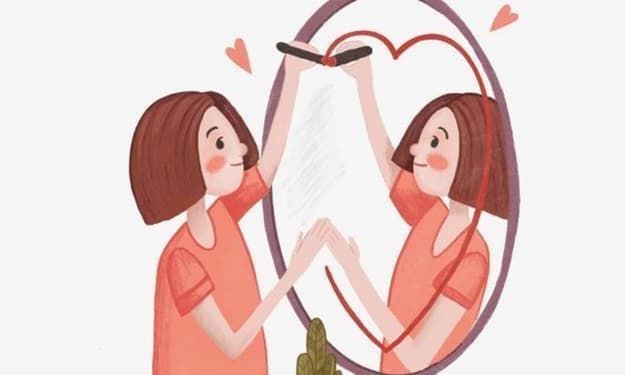
We humans often lie for a variety of complex reasons. Sometimes we lie in order to protect ourselves or others from potential trouble, to avoid conflict, due to habit that has formed over time, or to perceive some advantage in that moment. Lying rarely benefits relationships in the long run and corrodes trust.
To Protect Ourselves or Others
While the sentiment behind many white lies may be well-intentioned, one must also consider the impact that lying - even small white lies - can have on relationships and self-development in the long run.
Open communication built on honesty and trust is the foundation of strong relationships. Telling small lies, even to spare someone's feelings, can erode that trust over time and make the other person question the sincerity of your remarks. It may also condition you to rely on deception rather than develop more constructive communication and conflict resolution skills.
A better alternative to lying is practicing honest, kind communication. When avoiding hurt feelings or conflict, try focusing your remarks on the positive while being honest. For example, you could say "That dress looks like it has a nice cut and color, but I think a different style might suit you even better." This avoids exaggerated praise while expressing care and honesty in a constructive way.
In difficult situations, strive for open communication and expressing your truth in a kind manner. Over time, this cultivates relationships built on sincerity, empathy and trust - far stronger foundations than well-intentioned lies.
While protecting others' feelings is a laudable instinct, in the long run honest, constructive communication strengthened by practice is a more positive path towards developing meaningful connections with others.
To Avoid Trouble
While there are situations where lying may seem momentarily beneficial, honesty is almost always the best policy in the long run. Lies and excuses build on each other, making it harder to keep track of the truth. Being forthright shows integrity and builds trust in relationships. Responding honestly, though difficult, strengthens character.
Force of Habit
Some people develop a habit of lying constantly, indeed about small effects. For these people, lying becomes alternate nature and they do it automatically without important study. This habitual lying can be delicate to break.
To Gain an Advantage
Some people lie strategically to gain some benefit, plutocrat, power, or an advantage over others. This type of calculated, tone- serving lying is considered vicious and innocently wrong. In summary, while there are numerous reasons we lie, utmost lying stems from the desire to make our lives easier, avoid pain or discomfort, or gain commodity we want. But habitual and vicious lying can damage our integrity and connections.
In the intricate shade of mortal commerce, falsehoods have set up a way to weave themselves into our diurnal lives. Whether they arise from tone- preservation, social dynamics, or a desire to cover others, falsehoods have come a nearly spontaneous response to colorful situations. still, the reasons behind our inclination to lie are multifaceted and complex. At the core of our tendency to deceive lies an abecedarian aspect of our psychology fear. Fear of judgment, rejection, or consequences can drive individualities to fabricate stories or withhold the verity. We live in a society that frequently values image and perception, obliging us to present ourselves in a favorable light. In such a world, the appeal of a taradiddle as a guard against implicit detriment can be tempting. By elaborating our achievements, distorting data, or concealing our excrescencies, we essay to draft an interpretation of ourselves that fits societal prospects or elicits admiration. likewise, lying can serve as a means of tone- preservation or protection of others. In certain situations, honesty may lead to detriment or conflict, and a taradiddle can be seen as a way to maintain harmony or safeguard connections. Whether it's sparing someone’s passions, avoiding discipline, or shielding loved bones from torture, lying can occasionally be perceived as a compassionate act, albeit with questionable ethical counteraccusations. still, the consequences of falsehoods extend beyond the immediate situation. The corrosion of trust is maybe the most significant influence. Lies chip down at the foundation of trust we make with others, creating crevices that can be grueling to repair. Once the verity is uncovered, the fate can be ruinous, causing emotional pain, fractured connections, and a loss of credibility. While lying may feel like an accessible short- term result, fostering a culture of honesty and translucency has enduring benefits. Honesty promotes trust, encourages authenticity, and cultivates stronger connections with those around us. It requires courage to be vulnerable and embrace our defects, feting that authenticity is more precious than any polished facade. In conclusion, the inclination to lie arises from a complex interplay of fear, social dynamics, and a desire for tone- preservation or protection of others. still, the long- term consequences of falsehoods, similar as the corrosion of trust, emphasize the significance of honesty and authenticity. By embracing openness and integrity, we can nurture deeper connections, make stronger foundations, and navigate the complications of life with lesser clarity and integrity.
About the Creator
Asmae El assri
Embark on a captivating literary adventure Explore my stories on VM. Immerse yourself in wisdom, insight, and thrilling narratives that will ignite your imagination. Let words transport you to new realms of wonder. Join me! #ReadWithMe






Comments
Asmae El assri is not accepting comments at the moment
Want to show your support? Send them a one-off tip.